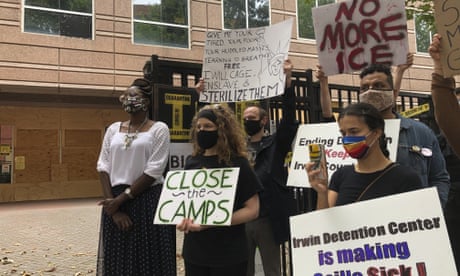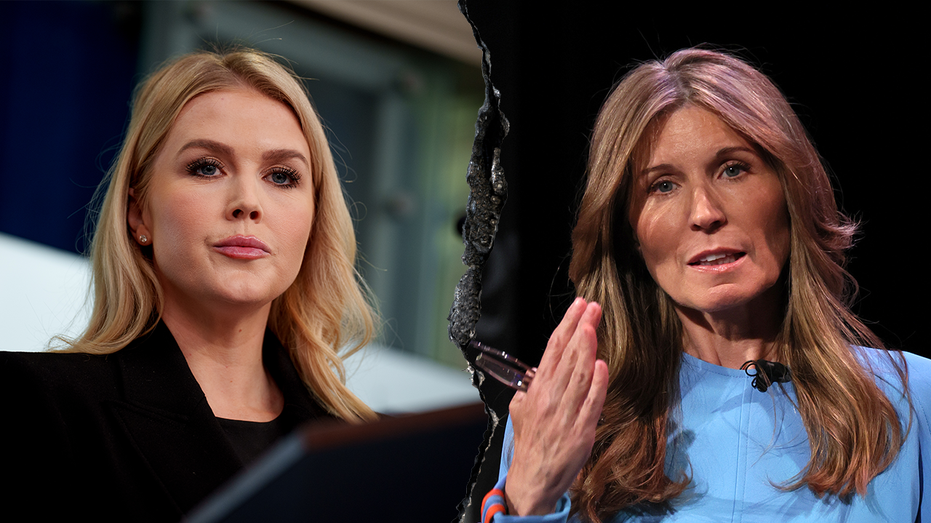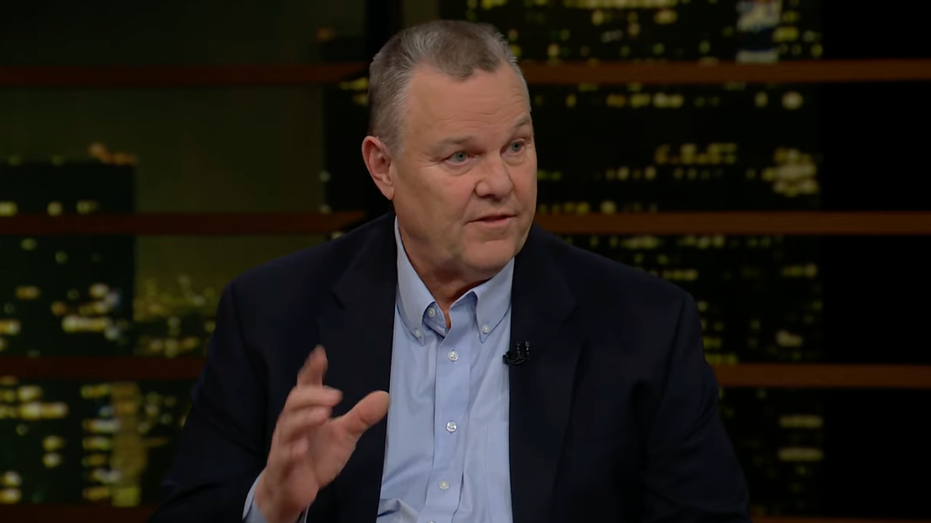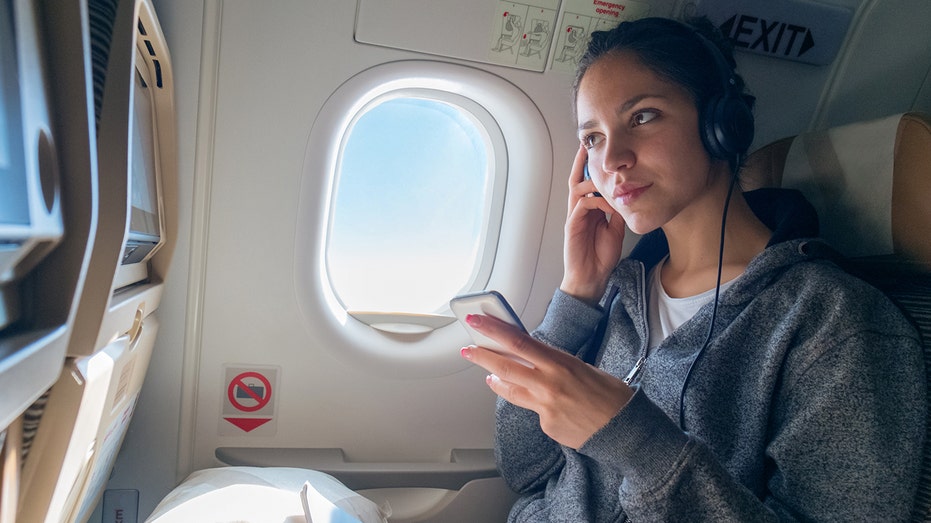- by foxnews
- 09 Mar 2025
‘I’m back on food stamps’: Nurse who exposed ‘uterus collector’ still faces consequences
‘I’m back on food stamps’: Nurse who exposed ‘uterus collector’ still faces consequences
- by theguardian
- 18 Oct 2022
- in news

When American nurse Dawn Wooten started asking questions about the alarming number of unwanted hysterectomies and gynaecological procedures being performed on detained immigrants at her workplace in Georgia, she was unfamiliar with the term whistleblower.
Now, more than two years on, she has no regrets about having raised the alarm with her report on Irwin County Detention Center that shook the US and Congress with allegations against a gynaecologist so notorious he was known as the "uterus collector".
But Wooten is still coming to terms with the repercussions.
Her whistleblower status has come to define her identity and much of her life. It drove Wooten and four of her five children into hiding, where they slept in one bed to comfort one other. It left her depressed and suicidal, pushed her from independence to reliance on government benefits and has made it almost impossible for her to do the job that she loves.
The 44-year-old single mother from Tifton, Georgia sometimes gets up early as if she were going to work and puts on her nurse's uniform and stethoscope before walking around her home. Such is her longing to work again as a nurse.
"Pre-whistleblowing, I worked four 12-hour shifts a week, was able to meet needs, loved what I did, got up every morning faithful in the job that I did. I love nursing," she told the Guardian, her passion audible.
Now there is no stability and despite spending every day on the phone trying to get a job, nobody will hire her. "Post-whistleblowing," she said, "I am on antidepressants, at one time I was suicidal, couldn't pay bills, still can't pay bills, my whole nursing career just plummeted."
She is unable to buy her children birthday and Christmas gifts, which she can no longer afford.
"I'm back on food stamps, I'm back on welfare, I'm back on Medicaid, I'm back trying to figure out how I'm going to make ends meet."
In September 2020, Wooten submitted her whistleblower disclosures and a retaliation complaint, along with the complaints of multiple women detained in Ice custody at the privately run Ice detention centre, to the Department of Homeland Security Office of Inspector General (DHS OIG).
The health and safety violations reported included failures to protect workers and immigrants from Covid-19 and nonconsensual invasive gynaecological procedures performed on detained women.
In May 2021, DHS ordered Ice to end its contract with Irwin, saying "we will not tolerate the mistreatment of individuals in civil immigration detention" and in January published a report stating that Irwin and Ice management fell short in their Covid safety guidance.
But two years on, at least two DHS OIG investigations remain open. Reports by Project South, which filed the original claims, and others found an outside gynaecologist billed Ice for at least 71 invasive procedures between 2015 and 2020 and collected testimonies from 14 former Irwin detainees who say they were subjected to gynaecological procedures without their full knowledge or consent.
The Government Accountability Project, which legally represents Wooten, and Project South have written to the DHS OIG inspector general but have yet to receive a response. When approached by the Guardian, the DHS OIG and Ice both said they were unable to comment on ongoing investigations.
LaSalle Corrections, which operates Irwin, did not respond to requests for comment but in 2020 said it "strongly refutes these allegations and any implications of misconduct."
While there has been a change of rhetoric under the Biden administration, Azadeh Shahshahani, Project South's legal and advocacy director said there are still "massive human rights violations" happening at Ice detention centres "with no meaningful oversight for accountability".
Wooten first got concerned about what was going on at Irwin when she returned to work in October 2019 after a four-year break. Covid cases, she claimed, were not being reported, documents were being shredded and, in the midst of all of that, detainees, many of whom were Spanish-speaking, were asking her to find out what surgical procedures they had undergone.
"Different migrant women were coming and asking me, 'can you check and see what procedure I had?' or 'what happened to me yesterday?' And they were coming back from the physician not knowing what was going on."
She was mortified by what she found. Without their knowledge, the women, she said, had been subjected to hysterectomies, dilation and curettage (a procedure removing tissue from the uterus) and had tubes and ovaries removed.
When she started asking questions, her colleagues tried to silence her. "I asked my supervisor, 'Hey, what's going on?' One of the co-workers put a hand on my hand and she was like 'Oh, you might want to leave that alone, I wouldn't touch that'." She soon faced disciplinary action and was told she no longer had a full-time position.
After reporting her findings to Project South and the Government Accountability Project, she filed a complaint with DHS OIG and went public with her claims. Her testimony created shock waves. "From this point, I've been given the title the Ice Whistleblower."
The conditions at Irwin were inhumane, she said. Cells were overpopulated, and they used broken examination tables. "They did not clean. There was a drop of blood I remember on the floor where one of the nurses that drew blood. This spot was on the floor for a couple of weeks."
She did not meet or work with the gynaecologist, who was later identified as Dr Mahendra Amin and is understood to be still practising, but she heard references to the "uterus collector" from a detainee.
While she did not know to what extent this wasgoing on, she knew something was not right. "I did not want to be caught up in something that I recognised was not correct. I didn't know to what legal place at the time, or how bad it was but it just didn't feel right. I knew it wasn't correct. So, I needed somebody to know it didn't feel right."
Many of the women in detention were depressed, she said, and she tried to help them with encouragement and motivation. "They had no rights at all," she said. "There was no freedom of speech, it was kind of like, you do A or we're going to do B."
Since her allegations were made public, she has received threats, including a death threat. For months, she lived in hotels with security and still avoids going out at night.
But in some ways, blowing the whistle has been empowering, she said. She has been recognised with several awards, including the First Amendment Award. She has started studying for an advanced nursing degree. It has helped her find her "inner voice".
She hopes to help educate other nurses on the importance of morals and ethics and the humanity of others. "And a wider scope would be to educate enough nurses that are entering the field that this doesn't continue to happen on their watch."
- by foxnews
- descember 09, 2016
'Speaker scum' on flights sparks debate among travelers: 'This is getting out of hand'
A traveler asked social media users to weigh in on flyers who play audio aloud on their devices and don't use headphones.
read more


